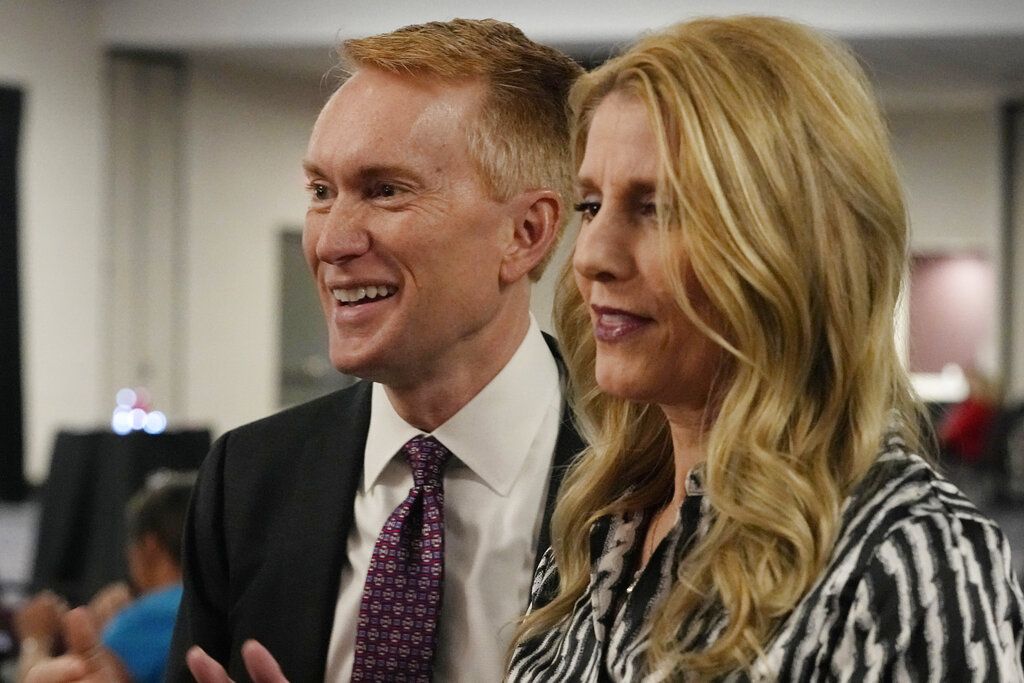In February, Alabama’s Supreme Court ruled that embryos are human, triggering a political earthquake that erupted across the country. The Democratic Party seized the moment, defining the decision’s interpretation, and immediately labeling it as anti-in-vitro fertilization. With top Democrats arguing that Republicans’ anti-abortion positions are incompatible with a pro-IVF posture, Republicans have been put in an uncomfortable position during an election year.
Alabama’s Supreme Court ruling came after three Alabama couples sued the Mobile Infirmary Medical Center and the Center for Reproductive Medicine when their embryos were accidentally destroyed during the IVF process. The court’s decision in their favor entailed consequences for IVF facilities, making them liable for destroyed or discarded embryos now recognized as legal persons. The decision did not legally prohibit IVF, but it made providing and obtaining IVF more difficult.

Democrats have put Republicans on the defensive over Alabama’s decision in the United States Senate, with Sen. Tammy Duckworth (D-IL) neatly summing up their messaging strategy in March. “It’s a little personal when a majority male state Supreme Court suggests that people like me who became pregnant with the help of modern medicine should be in jail cells and not nurseries,” the Democrat senator said. Other Senate Democrats say supporting IVF is incompatible with a pro-life position on embryonic personhood. In March, Senator Patty Murray (D-WA) said, “When Republicans support legislation that says a fertilized egg has the same rights and protections as a living, breathing, human person—that is fundamentally incompatible with supporting IVF! That is the very ideology that caused the disaster in Alabama!”
Senate Democrats have introduced at least two major pieces of legislation they say aim to enshrine basic IVF and contraceptive rights. Republicans have been near unanimous in blocking their passage, saying there is no effort in “any state in the country to ban fertility treatment,” and “there is no place in the country where contraceptives are not allowed or prohibited in any way.” Most Senate Republicans also agree that Democrats’ Right to Contraception Act and Access to Family Building Act bills open the door to gene editing and cloning, erase basic religious freedom protections, and contain definitions of “contraceptives” that include abortion medications.
Sen. Josh Hawley (R-MO) expressed many conservatives’ concerns about the Right to Contraception Act, saying, it would “make the abortion drug mifepristone — not contraception, but mifepristone — available in all 50 states no matter what the state law is, and that would override my state’s law, bunch of states’ laws.” Hawley added, “That’s an abortion issue. That’s not a contraception issue.”
Republicans in the upper chamber have divided into several camps: some have chosen silence as their course, steering clear of controversy; other pro-life Senators support IVF while wrestling with ethical dilemmas of embryos discarded and frozen throughout the process; still others seek to expand protections for IVF but are split as to what extent federal regulation is needed.
Senate Republicans steering clear of controversy
The Senate’s Republican leadership has responded to the IVF battle, for the most part, with radio silence. Senate Minority Leader Mitch McConnell (R-KY), Sens. John Barrasso (R-WY), and John Boozman (R-AR), have steered clear of the issue, signaling to their conference that the best message is no message at all.
McConnell’s leadership style on IVF has invited increasing criticism from his conference. Last week, Sen. Ron Johnson (R-WI) slammed the GOP leader for failing to negotiate with Senate Majority Leader Chuck Schumer (D-NY) ahead of the vote on the Right to Contraception Act. “There was no engagement. We had no leadership on this whatsoever. And listen, there are a lot of smart people in that room, but you know, you need a leader,” Johnson claimed.

Social media engagement on X showcases the stark difference between leadership’s engagement on the IVF issue. Schumer has posted on the issue 15 times since February’s ruling. McConnell has posted zero times. No one on the GOP Senate leadership team has posted on the issue, while nearly every top Senate Democrat has attacked Republicans repeatedly on social media.
Sen. James Lankford (R-OK) explained the basis of Republican leadership’s messaging, or lack thereof, during an interview with the Washington Examiner.
“If I go backward and say six months ago, were Republicans posting about IVF online? You would say no, and you would say that’s normal. Why should they post online about IVF? Because there’s not a threat to it. So now your question is Democrats are posting like crazy on this. So why aren’t you? Because it’s not a threat. No one’s taking away IVF,” Lankford said.
Lankford says the GOP’s messaging strategy follows polling data. “We can either try to live in the messaging that [Democrats] are trying to drive and say they’re trying to make people afraid or we can talk about the issues that Americans are actually talking about. Americans are talking about things like the border. Americans talking about inflation, Americans talk about the price of groceries and gas. Every poll that you see, the things that Americans are talking about are those things. IVF is not showing up on the list of things that Americans are talking about all the time,” Lankford noted.
Other Senate Republicans have taken their messaging lead of GOP leadership. From Sen. Rand Paul (R-KY) to Sen. John Hoeven (R-ND), tens of Republicans have elected to ignore the issue.
Paul has been silent since the February ruling. However, in 2021, the Kentucky senator offered a pro-IVF addition to House Republicans’ controversial Life at Conception Act. His measure stated, “Nothing in this Act shall be construed to require the prosecution of any woman for the death of her unborn child, a prohibition on in vitro fertilization, or a prohibition on use of birth control or another means of preventing fertilization.”
Moran has also made no comments since Alabama’s IVF ruling, missing the Senate’s Wednesday vote on Democrats’ Right to Contraception Act. A page on his official Senate website reads “I oppose the destruction of human embryos for stem cell research,” while not specifying any position on embryos destroyed during the IVF process. The Washington Examiner reached out for comment to Moran.
Except for a statement his spokesperson made to the Charlotte Observer in March, Tillis has stayed under wraps. In the spring, his spokesman said he believed “protecting access to IVF and other fertility treatments…is about creating life, not destroying it,” adding he wasn’t worried about other states following Alabama’s lead on IVF.
Senate Republican outliers on the IVF issue
While every Republican senator says IVF should be protected, there are a few outliers in the party. A few embrace the nuance in the issue, pairing support for IVF with concerns about the “ethical dilemma” it poses. Two other senators have left party lines to side with Democrats on their “reproductive rights” bills.
Sen. Marco Rubio (R-FL) is a rare sighting on Capitol Hill: a Republican who isn’t silent about the uncomfortable tensions pro-life conservatives see in IVF, calling it “a very difficult bioethical issue” in March. In a statement to the Washington Examiner, the Floridan was brutally honest about IVF’s complexity.
“We must establish commonsense guardrails for IVF to address the ethical dilemma it poses, which is that in order to create life, you also have to destroy life because embryos are created that are not going to be used,” Rubio told the Washington Examiner.
During interviews with the New Republic after the Alabama ruling, some of Rubio’s Senate colleagues agreed with him; others have expressed a different perspective. Sen. Markwayne Mullin (R–OK) didn’t define an embryo as life in March. The freshman senator, whose wife underwent fertility treatment over seven years, told the news outlet that when he “heard a heartbeat—that was life to me. I mean, that was my child. When you start talking about that, I start looking towards a heartbeat, because that’s when life begins.” Sen. Bill Cassidy (R-LA) said questions of embryo’s legal personhood should be dealt with in individual states, while Sen. Cynthia Lummis (R-WY) declined to support legal personhood for “an in vitro situation.” However, Sen. Roger Marshall (R-KS) expressed concern over the growing number of frozen embryos, calling it a “tough question” that should be dealt with at the state level. In March, Sen. Josh Hawley (R-MO) dismissed questions about embryos destroyed during the IVF process. “Having a baby is a pro-life thing. So I’m in favor of it,” he said. Sen. Ted Budd (R-NC) touched on the issue of frozen embryos in February, telling the Washington Post that while he supports IVF, “there are other complexities,” regarding unused embryos.
Throwing away embryos is inherent to the IVF process. In the United States, embryos with a genetic or chromosome abnormality, are usually discarded, while sex selection or “social sexing” leads to the subsequent disposal of healthy embryos. Additionally, the National Embryo Donation Center estimates as many as 1.5 million embryos are currently frozen or abandoned across the country.
When asked if there is any tension between being pro-IVF and pro-life, Sen. Lankford (R-OK) broached some of Rubio and Budd’s concerns. The only Senator on Capitol Hill who offered to interview with the Washington Examiner, the Oklahoma Republican was adamant during a call that IVF “is passionately pro-life.” However, Lankford also brought up worries he has about “the embryos that are frozen and that remain,” calling it, “a moral challenge.”
Lankford offered up solutions: supporting embryo adoption and embracing more alternatives to IVF. “Some families I know are adopting some of those embryos, and they are carrying those embryos and it becomes a celebration of life for them as well,” Lankford said, adding that there are “other ways of trying to be able to support families in their infertility. IVF is not the only option. It’s usually the last option because it is so expensive. So there’s a lot of work to be able to say ‘what can we do to be able to not just buy IVF but talk about infertility.’”

When pressed on alternative solutions to infertility, Lankford mentioned basic lifestyle factors should play a role in the conversation around fertility. The senator commented there is a need to “help families through things like their basic health care, adding that “there’s a lot of things you can do with health and nutrition. Lankford doesn’t want women who struggle with infertility to feel like “their only option is IVF.”
Federal data backs Lankford up. National Institute of Child Health and Human Development, basic health care factors including “obesity, strenuous physical labor, excessive exercise, substance use, heavy drinking, high blood pressure and others [have led] to increasing rates of infertility.” The U.S. Department of Health and Human Services says the same: “Lifestyle factors—what you eat, how well you sleep, where you live, and other behaviors—have profound effects on health and disease. Fertility is no exception,” states the HHS. According to the U.S. Centers for Disease Control and Prevention, the fertility rate for women in 2023 dropped to 1.62 births per woman, the lowest in United States history.
As one of the few Senate Republicans willing to publicly expound on the fertility issue, Lankford also shot down Democrats’ Veterans Families Health Services Act of 2023 in March. While Democrats branded the legislation as expanding and supporting veterans’ access to IVF treatments, Lankford voted to block the bill, saying it had “overly broad definitions—opening the door for human cloning, embryo discrimination, and much more.”
While some Senate Republican outliers weigh the ethical dilemma surrounding embryos, two others have run to the other side of the aisle. Pro-abortion Sens. Susan Collins (R-ME) and Lisa Murkowski (R-AK) have crossed party lines during the IVF controversy. Both senators were the only Republicans to vote in favor of the Right to Contraception bill on Wednesday and they both support federal protections for IVF.
Senate Republicans pushing back on Democrats’ claims
Many Senate Republicans are focused on pushing back on Democrats’ claims that fertility treatment and reproductive rights are under attack.
Initially saying he was “all for” the court’s decision, Tuberville has called Democrats’ framing of the IVF issue “totally false.” In March he told Newsweek, “You know, the Supreme Court jumped in to help out a disaster when somebody dropped some of those embryos. But the Statehouse jumped in, and they did a clarification, passed a law, and Governor [Kay] Ivey’s already signed it.” He added, “We’re all for IVF.”
In a statement, Tubberville’s communications director, Mallory Jaspers, told the Washington Examiner, “This bill [the Right to Contraception Act] is just the latest step in Democrats’ attempts to make this election all about abortion. Sen. Tuberville fully supports IVF, which is legal in Alabama and a great option for many families. Democrats are lying about states like Alabama – no one is trying to cancel IVF or ban contraception. Voters will see right through this.”
When Sen. Cindy Hyde-Smith (R-MS), blocked Democrats’ Access to Family Building Act, in late February, she explained in a statement the bill was unnecessary because “in reality, no states have banned or intend to ban IVF.”
Sen. Bill Cassidy (R-LA), the top Republican on the Senate Health, Labor, Education, and Pensions Committee, has said, “The Democrats are using their power to push an alarmist and false narrative that there is a problem accessing contraception.” Sen. Tim Scott (R-S.C.), considered to be a top contender as former President Donald Trump’s running mate, has said contraception is already accessible across the country. Sen. John Cornyn (R-TX) has called the suggestion that basic contraception rights are under attack “embarrassing,” saying, “It’s a phony vote because contraception to my knowledge is not illegal. It’s not unavailable.” The Texan has noted that Alabama’s legislature passed a bill to protect IVF centers in the wake of its Supreme Court ruling’s backlash.
Sen. Rick Scott (R-FL) has stepped up his engagement with the IVF issue since announcing his bid to replace Sen. Mitch McConnell as the Senate’s next Republican leader. The Floridan launched a 7-figure ad-buy last week to boost the GOP’s image as rock-solid IVF supporters. In the ad, Scott says, “Attack ads say the same crazy stuff about every Republican. ‘They hate women, birth control, even IVF.’ It’s ridiculous.”
Scott adds, “ IVF — in vitro fertilization — has brought beautiful babies to so many families. For me, it’s personal. My youngest daughter has been undergoing IVF treatments to grow her family. I’m Rick Scott, and this grandpa will always protect IVF.”
In March, Scott led a bicameral resolution supporting IVF as it stands, saying in a statement at the time, “IVF is a wonderful thing that enables so many Americans struggling with infertility to have children and start a family… While IVF remains available in all 50 states, I believe it is important for the Senate to make clear our unwavering support for current and aspiring parents using IVF to start and grow their families.”
During a Senate Judiciary Committee Hearing in March on reproductive rights, Sens. Lindsey Graham (R-SC), John Kennedy (R-LA, and Marsha Blackburn (R-TN) attempted to flip the script on reproductive rights. “I support IVF…I’m a mom and a grandmom. I have plenty of friends that have used IVF,” Blackburn said during the hearing in March. She then argued that Democrats are pushing for “abortion on demand from conception to birth.”
In a post to X after Alabama’s ruling, Graham said, “The last thing Republicans will do is shut down fertility clinics and limit access to legal birth control.”
Senate Republicans who support federal legislation to protect IVF
Many Republicans support enacting federal protections for IVF and contraceptive rights, despite the GOP’s position that IVF and family planning measures are not under attack in any state.
In February, Sen. Steve Daines (R-MT) said he would support federal protections, while recently telling the Washington Examiner, “Access to IVF is not under attack despite Democrats’ baseless attempts to tell the American people the opposite.” The National Republican Senatorial Committee, which Daines co-chairs, has also endorsed reproductive rights legislation led by Sens. Joni Ernst (R-IA) and Shelley Moore Capito (R-WV). Introduced as a conservative alternative to Democrats’ Right to Contraception Act, the female Republicans say their Allowing Greater Access to Safe and Effective Contraception Act strikes the right balance between supporting “easier access to safe birth control” and “ensur[ing] tax dollars are not being used to fund abortions or abortion providers.”
In May, Sens. Ted Cruz (R-TX) and Katie Britt (R-AL) introduced a bill cutting Medicaid funding to any state that might ban IVF. Cruz told the Washington Examiner, “If you look nationally, Americans overwhelmingly support IVF. Our bill contains conscience protections and of course no one is going to be forced to use IVF, but we should make sure that Americans have the choice to use this technology if they want to. There is nothing on earth like having a little girl or a little boy or raising a baby—being parents. IVF is incredibly life-affirming. It is all about bringing life into the world, being a parent and loving a child. That option should be protected.” The senators’ IVF Protection Act comes after Cruz claimed Democrats’ Access to Family Building Act, was “a back-door in broader abortion legislation.” Democrats claimed their legislation was all about “establish[ing a legal right to IVF and other assisted reproductive services.”
For her part, Britt has shown her full support for IVF, becoming one of the loudest Republican voices for the fertility treatment. She allegedly spoke to former President Donald Trump before he made a statement supporting IVF after Alabama’s ruling while leading a Senate Republican meeting on the issue shortly after the court’s decision in February.

Sens. Cynthia Lummis (R-WY) and Roger Wicker (R-MS) also joined the bill. Lummis told the Washington Examiner, “Children are one of life’s true blessings, and for some, IVF is one of the only paths to parenthood. I remain steadfast in my commitment to not only protecting IVF and fertility treatments but in making it easier to access and more affordable for folks in Wyoming. While Democrats continue to fearmonger and push lies, I will remain an ardent defender of life and pro-family policies in Washington.”
Sen. Todd Young, (R-IN) has joined his Republican colleagues in claiming he “would entertain legislation to preserve that important prerogative for women and families,” while Sen. Mitt Romney (R-UT) initially expressed support for federal legislation saying, “I’d have several fewer grandkids if we didn’t have IVF.” He qualified his remarks later, Congress didn’t have “enough of a window on that at this stage in that it’s not been an issue for any state other than Alabama,” while adding “the Alabama Legislature, as I understand it, is attempting to deal with this legislatively, so I don’t think it’s an issue elsewhere.”
Sen. Roger Marshall (R-KS) also supports federal legislation on IVF. In April, he announced bipartisan legislation with Sen. Cory Booker (D-NJ) to expand Americans’ insurance options to cover IVF and other fertility treatments. It is unclear whether the bill is still moving through the Senate. The Washington Examiner reached out to Marshall for comment.
In a recent statement to the Washington Examiner, Marshall called IVF, a “miracle.”
“In America, 200 beautiful babies will be born today thanks to the miracle of in vitro fertilization (IVF). As an obstetrician, I have witnessed firsthand the gift of this technology to countless families. We thank God for the technology that allows us to provide hope and joy to moms & dads struggling with infertility. The Republican party is the pro-family party, and nothing is more pro-family than welcoming a baby into the arms of their mom & dad,” Marshal said.
Sen. Markwayne Mullins (R-OK) has said he would be open to creating federal protection for IVF, saying “Hopefully, we don’t have to do this federally, but if we do need to, I can assure you I’ll be right in the middle of that fight, fighting for it.”
In the weeks following the Alabama ruling, Sen. Chuck Grassley (R-IA) called for Congress to increase access to and coordination between government programs for pregnant women. He also called for “legal protection for IVF” while not specifying if he meant federal or state.
Senate Republicans for leaving IVF up to states
Several supporters of IVF in the upper chamber’s GOP caucus say they would rather leave the IVF issue is best left to the states. Sen. John Thune (R-SD), one of the few Senate Republican leaders who have publicly commented on IVF, has said the issue shouldn’t be decided by “Washington DC but by the American people.”
“Every state gots their own views on this [IVF], and their state legislatures reflect that,” the Republican told CBS News in March.
CLICK HERE TO READ MORE FROM THE WASHINGTON EXAMINER
Sen. Mike Rounds (R-SD) has shown support for a similar approach to IVF. In February, Thune’s South Dakota Republican counterpart commented, “Individual states look at all the different issues surrounding this particular issue in particular, you’re going to get a number of different ideas about how to approach it.” Sen. Mike Braun (R-IN) shared similar sentiments after the Alabama ruling, saying he was confident the state’s legislature would address any issues while other states would “wrestle” with the question of embryos on an individual basis. In the aftermath of the Alabama ruling, Sen. Ron Johnson (R-WI) also expressed faith that Alabama’s legislature would take care of any IVF hurdles while saying he wasn’t worried about IVF facing battles in any other states.
Likewise, a spokeswoman for Sen. Mike Crapo (R-ID) said in March: “States should act on IVF, not Congress.”
























